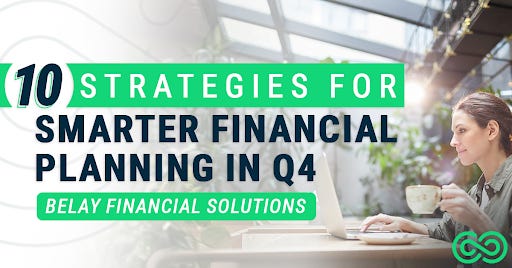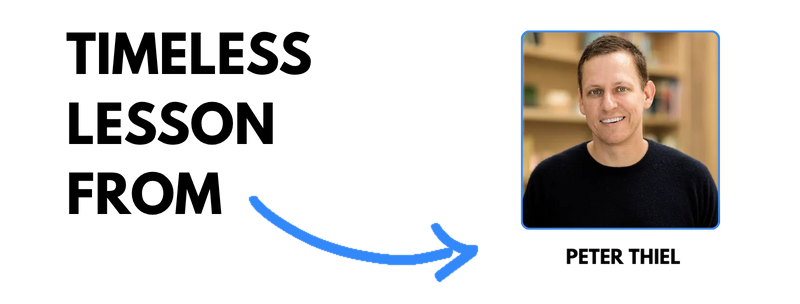Peter Thiel: Betting Against the Crowd
Brilliant but unconventional, Thiel excelled at math and philosophy before studying law at Stanford.
Peter Andreas Thiel was born on 11 October 1967 in Frankfurt, West Germany. His family moved to the United States when he was a child, settling in California. Brilliant but unconventional, Thiel excelled at math and philosophy before studying law at Stanford. He would go on to challenge not only legal orthodoxy, but business, technology, and culture itself.
Before we continue, a quick word from today’s sponsor:
The best time to forecast? Now.
Q4 is the perfect window to turn this year’s numbers into a clear, actionable forecast aligned with your goals. Set your business up for a stronger 2026 with BELAY’s new guide.
Download The Financial Planning Playbook: 10 Strategies for Small Business Growth today.
After graduating from Stanford Law School in 1992, Thiel briefly worked at a law firm and as a derivatives trader. Neither fit. In 1996, he founded a small hedge fund and co-authored The Diversity Myth, critiquing campus culture.
In 1998, he teamed up with Max Levchin and others to launch Confinity, which merged with Elon Musk’s X.com to become PayPal. As CEO, Thiel steered PayPal through early turbulence, pioneering online payments and battling fraud. When eBay acquired PayPal in 2002 for $1.5 billion, Thiel pocketed over $50 million.
Instead of retiring, he invested in Facebook’s first outside funding round in 2004, turning a $500,000 bet into billions. He co-founded Palantir Technologies, a data analytics company used by governments and corporations, and launched Founders Fund, backing companies like SpaceX, Airbnb, and Stripe.
Thiel became known as Silicon Valley’s contrarian. He questioned the value of higher education, funded radical life-extension research, and argued that competition kills innovation. His book Zero to One crystallized his philosophy: the greatest businesses don’t copy, they create entirely new categories.
Create, Don’t Compete
Peter Thiel built his career on a contrarian principle: competition is for losers. At PayPal, Facebook, and Palantir, he didn’t just try to be better than rivals — he created new categories altogether. His book Zero to One captured this philosophy: the greatest businesses don’t copy, they invent.
His approach shows that fighting over crowded markets drains energy, while creating new ones multiplies it. The real edge comes from designing the game yourself.
Thiel’s story challenges us to think bigger. It’s easy to measure success by beating the nearest rival — harder to ask whether the whole field is worth playing in. The next breakthrough isn’t hiding inside today’s competition. It’s waiting in the space no one else is looking.
Until next time,
The Chronicler






Thanks, was going to read zero to one... This is a brief summary of his principal and mindset.